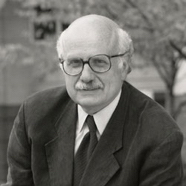Why Political Money Corruption Thrives In Washington & How To Fix It
Fred Wertheimer’s Weekly Note | March 30, 2023
 Presidential and congressional candidates from both parties, a feckless Federal Election Commission (FEC), and a Supreme Court majority extremely hostile to campaign finance laws have combined to eviscerate federal contribution limits – a key to restricting political money corruption in Washington.
Presidential and congressional candidates from both parties, a feckless Federal Election Commission (FEC), and a Supreme Court majority extremely hostile to campaign finance laws have combined to eviscerate federal contribution limits – a key to restricting political money corruption in Washington.
The result: a campaign finance system that allows influence buying and selling by donors and officeholders, a flood of secret money from influence-seekers, and participants in federal elections working around, or simply ignoring, the campaign finance laws as they see fit.
We have gone back to the corrupt days of the Watergate campaign scandals of the 1970s and the Robber Baron era of the late nineteenth century.
Today’s political money system in Washington is dominated by billionaires and millionaires, lobbyists, bundlers, Super PACs, and “dark money” organizations that have undue influence in our elections and corrupting influence over our government decisions.
Candidate contribution limits were enacted in 1974 and upheld by the Supreme Court in 1976 in Buckley v. Valeo as constitutional and necessary to prevent “corruption” and the “appearance of corruption,” and important to enhance the “integrity of our system of representative democracy.”
But the Supreme Court’s Citizens United decision in 2010 reopened the floodgates, allowing wealthy interests to circumvent contribution limits through Super PACs and “dark money” nonprofit groups.
Since then, billions of dollars in unlimited contributions have been spent by Super PACs and nonprofit groups in our elections, drowning out the voices of citizens and paralyzing action on important issues that have wide public support – including sane gun laws, responsible energy policies, and essential climate change rules.
In last year’s midterm elections alone, Super PACs poured more than $2.1 billion – billion – in unlimited contributions into federal elections, much of it secret money.
Citizens United requires that expenditures of unlimited contributions by Super PACs must be made independent of the candidates being benefited.
The Supreme Court made clear over the years that independent expenditures must be “totally” independent (Buckley v. Valeo, 1976), “without any candidate’s approval (or wink or nod)” and “truly independent” (FEC v. Colorado Republican Federal Campaign Committee, 2001).
But the Court’s clear requirement that independent expenditures be “totally” and “truly” independent was turned into a joke by the FEC which gutted the requirement with its ineffectual regulations and spurred the emergence of single-candidate Super PACs.
Almost every serious presidential candidate in recent elections has had a single-candidate Super PAC that raises and spends money solely for that candidate. The donor and the federal candidate both know that the $100,000 or $500,000 contribution to the Super PAC is for the candidate and is evading the $3,300 limit a donor can by law give directly to the candidate.
Furthermore, these presidential Super PACs, along with similar single-candidate Super PACs supporting many congressional candidates, generally are controlled by close associates of the candidate, as are “dark money” nonprofits that have been created to support only one candidate.
It’s easy to see why these single-candidate Super PACs have become engines fueling today’s campaigns – for the candidates receiving their support, there are no contribution limits.
Under federal law, if a Super PAC makes an expenditure that is coordinated with a candidate, the expenditure is considered a contribution to the candidate. By law, that would limit the Super PAC’s spending to no more than the PAC contribution limit of $5,000 per election for that candidate.
But candidates and Super PACs don’t need to worry about this limit since the independent expenditure law has been gutted, making a mockery of the contribution limits that are essential to preventing political money corruption.
There is a solution to the problem – the creation of an alternative financing system that allows candidates to run for office based on small donor contributions and matching funds. This would encourage new entrants and diversity and allow candidates to run for office without becoming indebted to big-money donors and trapped in a corrupt system.
Until then, political money corruption will thrive in Washington.
________________________
Fred’s Weekly Note appears each Thursday in Wertheimer’s Political Report, a Democracy 21 newsletter. Read this week’s and other recent newsletters here. And, subscribe for free here and receive your copy each week via email.